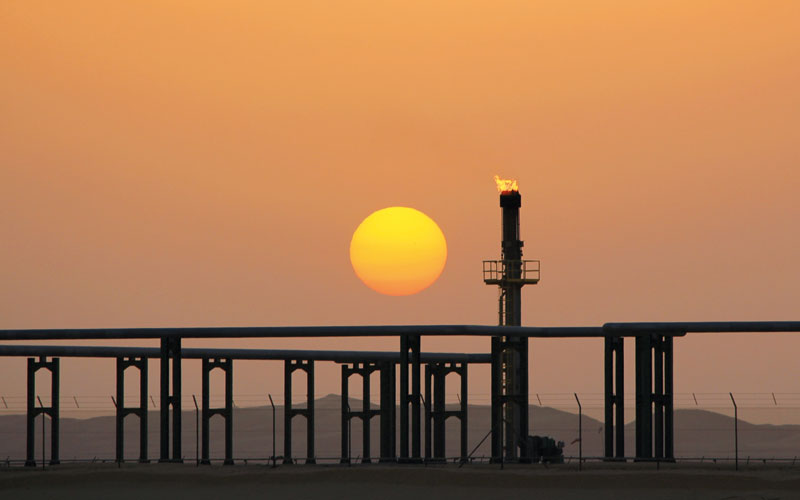Foreign oil & gas firms capitalize on the sultanate’s friendly and welcoming environment.

One of Oman’s chief exports is oil, sending more than 790,000 barrels per day abroad in 2013. While there was a multi-year decline in oil production in the early 2000s, enhanced oil recovery techniques like steam injection and miscible injection have caused a rebound in the industry. With 5.5 billion barrels, Oman ranks seventh in the Middle East and 21st in the world for proved oil reserves.
Numerous foreign countries have benefited from investing in Oman’s oil and gas industry. Among them is CC Energy Development (CCED), a Lebanese registered company that set up its office in Oman in 2008. In 2009 it began exploration and drilled two back-to-back successful wells. The following year, it brought these wells on stream into production, and today is producing about 25,000 barrels a day. CCED has set the goal to produce 30,000 by the end of 2014.
Shahrokh Etebar, CEO of CCED, says that though the company is still working in primary and secondary exploration and exploitation, they’re making continual progress.
“We have a reservoir – we call it semi-unconventional – which requires potentially horizontal well drilling and hydraulic fracking,” he says. “We also have some areas that contain bitumen, and they are at a depth of 1,000 meters, so they are very challenging, but we have started looking at these for the future, maybe 10-20 years off.”
Mr. Etebar has an explanation for his firm’s success: “I have lots of experience living and working in the Middle East and I find Oman to be very friendly and cooperative, and the Ministry of Oil and Gas has been helpful with our progress.”
He also credits the country’s strategic position and its stability. “The most important issue for any investor is stability and fortunately, Oman is a very stable country and His Majesty is a visionary,” he highlights.
“He is avoiding animosity with any other country nearby and he’s friendly. Under his leadership, a lot of these developments have gone through. When you come to the oil industry, Oman has still a lot of areas to be explored and as I was saying, Oman is stable and a good place for oil companies to invest.”
Gong Changli, CEO of another successful foreign firm operating in Oman, Daleel Petroleum LLC, also points out the country’s strong suits: “In my view, the most successful factors in Oman are the high standards of the market, transparency of the system and process.”
“Oman has worked to create an attractive investment environment and focused on priorities with a sustainable balance,” he continues, and illustrates this balance by citing Oman’s diversifying economy, with sectors like agriculture and tourism slowly but surely catching up to oil.
Formed in the second half of 2002, Daleel Petroleum is today one of the leading oil producing companies in the sultanate of Oman. It is a 50/50 joint venture between Mezoon Petrogas SAOC (a subsidiary of MB Holding) and Mezoon Petrogas BVI (a subsidiary of China National Petroleum Corporation). Daleel Petroleum is involved in the exploration, appraisal and production of hydrocarbon reserves located onshore in Oman’s Block 5, roughly 280 miles northwest of Muscat.
Despite the positive scenario Oman has developed for oil and gas investors, there are still some challenges. Raoul Restucci, Managing Director of Petroleum Development Oman (PDO), says, “We are getting into more complex oil. Easy oil is gone, if it was ever there.”
Mr. Etebar agrees, saying, “The reservoirs in Oman are not like the huge reservoirs in [other parts of] the Middle East. They are more challenging to find, but they are there. It requires patience and knowledge; different technologies.”
Another challenge, Mr. Changli explains, is that it is becoming increasingly costly to operate. “Health care enhancement, manpower costs, material costs, and maintenance costs for the integrity of the facilities and so on, are all contributing to the increase in operating cost,” he says.
And yet the CEO is confident his company will continue to expand. “Daleel is still in a position to grow in terms of production and investment. We are recruiting more people and implementing more activities to produce more oil for the country. Daleel will be very busy in the coming five years,” he says.
1 COMMENT
what a great article